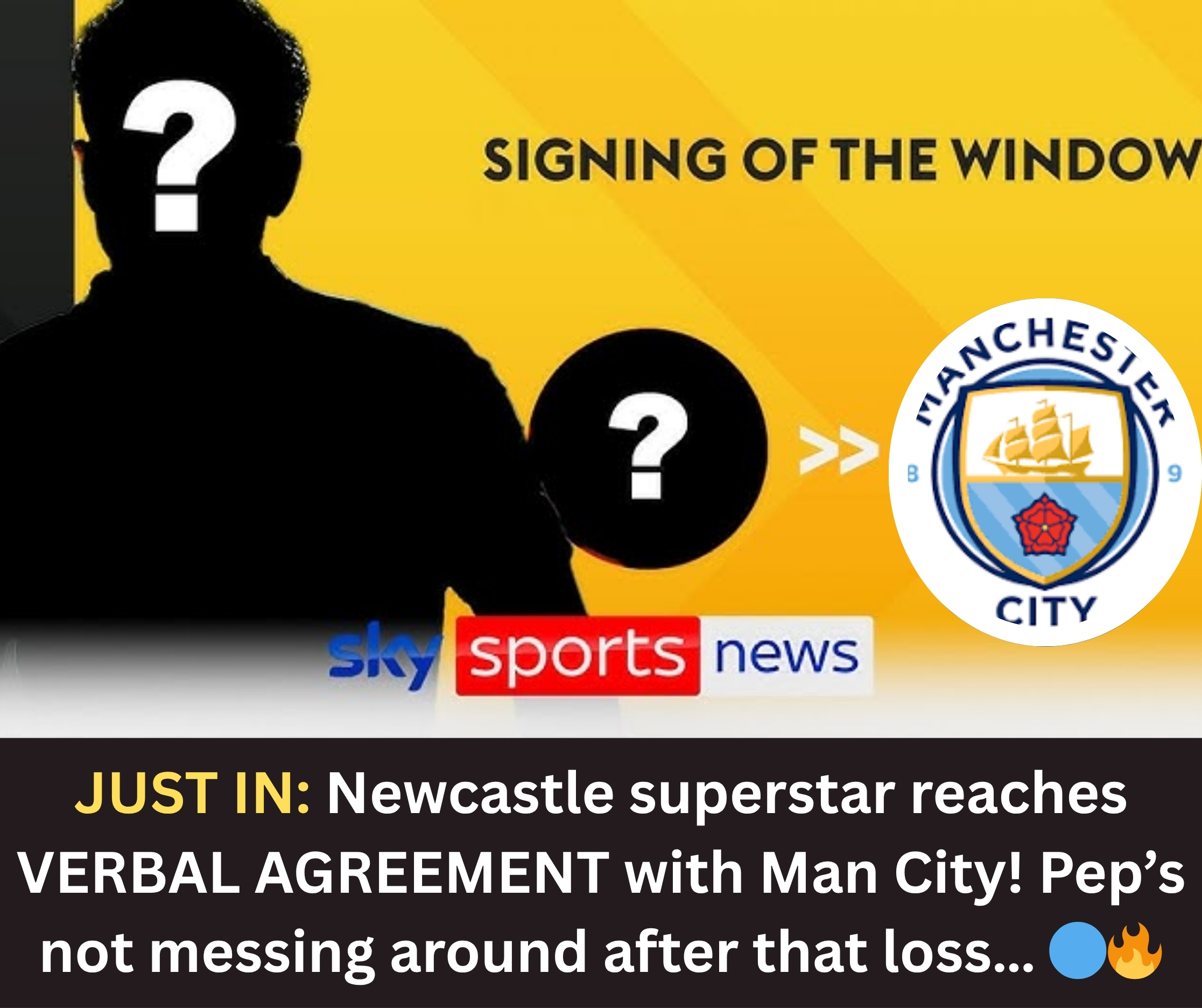Why Newcastle United Players Should Think Twice Before Joining Traditional ‘Big Six’ Clubs

In the modern football landscape, there exists a persistent narrative that permeates sports journalism and punditry: the assumption that any Newcastle United player would automatically leap at the opportunity to join Manchester City, Arsenal, or Liverpool. This narrative has become so deeply ingrained in football discourse that it’s rarely questioned, treated instead as an immutable law of the sport. Yet when we examine this assumption closely, stripping away the lazy journalism and outdated perceptions, a very different picture emerges.
The question isn’t whether these clubs have historical pedigree or current strengths – they undoubtedly do. The question is whether, in 2025, the gap between Newcastle United and these supposedly superior destinations is as vast as the media would have us believe. More importantly, we must ask whether the trajectory of Newcastle United under Eddie Howe and the club’s new ownership represents a more compelling proposition for ambitious players than the established hierarchies of English football.
The Transformation Under New Leadership
To understand why Newcastle United players might not be so eager to abandon St. James’ Park, we must first acknowledge the seismic shift that has occurred at the club. The contrast between the previous ownership era and the current regime couldn’t be more stark. Under Mike Ashley, Newcastle United operated as a glorified cash conversion machine, where promising players were systematically sold to balance the books, and ambition was suffocated by financial constraints and sporting neglect.
The previous owner’s approach was transparently mercenary: encourage decent players to leave for reasonable fees, reinvest minimally, and repeat the cycle. This created a culture of acceptance around mediocrity and exodus, where players naturally looked elsewhere for their career progression. The club became a stepping stone rather than a destination, a place where talent was developed only to be harvested by more ambitious clubs.
Today’s Newcastle United operates under entirely different principles. The new ownership has demonstrated a commitment to building something sustainable and significant. This isn’t merely about financial firepower – though that certainly helps – but about creating an environment where players can fulfill their ambitions without needing to look elsewhere. The club’s recent trajectory suggests that staying at Newcastle might actually represent the more forward-thinking career choice.
Arsenal: The Myth of Consistent Success
When we examine Arsenal’s recent record, the assumption that any Newcastle player would jump at the chance to join them becomes increasingly questionable. The Gunners haven’t lifted a trophy in six years, a drought that exposes the gap between their historical reputation and current reality. This isn’t a temporary blip but part of a broader pattern of decline from their peak years.
Since 2005, Arsenal’s trophy cabinet tells a story of diminishing returns. In those twenty years, they’ve managed to win just one competition – the FA Cup – albeit four times. While the FA Cup shouldn’t be dismissed entirely, it hardly represents the kind of sustained excellence that would make a Newcastle player desperate to swap clubs. The narrative of Arsenal as a guaranteed trophy-winning machine simply doesn’t align with the evidence.
The competitive dynamic between Arsenal and Newcastle has shifted dramatically. Newcastle came agonizingly close to achieving something unprecedented in May – becoming the first club to beat Arsenal four times in a single season. Had Eddie Howe’s side taken their numerous first-half chances in that crucial encounter, they would have established a psychological dominance that would have sent shockwaves through the established order. Even falling short of that milestone, the fact that it was within reach demonstrates how far Newcastle have progressed relative to their supposedly superior rivals.
This competitive parity extends beyond individual matches. Arsenal’s struggles to consistently challenge for the Premier League title, combined with their European disappointments, suggest a club that remains some distance from the elite level. For a Newcastle player considering their options, the question becomes: why join a club that’s struggling to rediscover its winning formula when you’re already part of one that’s clearly ascending?
Liverpool: Recent Success Built on Fragile Foundations
Liverpool’s recent Premier League triumph represents a significant achievement, but it’s important to contextualize this success within the broader arc of their recent history. Until this season’s title win, Liverpool had managed just one Premier League/First Division victory since 1990. This statistic is particularly striking when we consider the reverence with which Liverpool is typically discussed in football circles.
The Merseyside club’s dominant periods belong to previous decades – the 1970s and 1980s – when they could legitimately claim to be the best team in England by a considerable margin. During those eras, players could look at Liverpool’s trophy haul over the preceding decade and see clear evidence of sustained excellence. The modern Liverpool, while successful, hasn’t established the same level of consistent dominance.
Perhaps most tellingly, it was only two years ago that Newcastle United finished above Liverpool in the Premier League table. This isn’t ancient history or a statistical anomaly – it’s recent proof that Newcastle can compete with and surpass Liverpool when both clubs are operating at their respective levels. For a Newcastle player, this recent precedent suggests that staying at St. James’ Park doesn’t necessarily mean accepting a lower ceiling than what Liverpool can offer.
The romantic notion of Liverpool as an irresistible destination is further complicated by the club’s current transition period. With questions surrounding their squad depth, managerial continuity, and ability to maintain their recent standards, Liverpool may not represent the sure-fire upgrade that conventional wisdom suggests.
Manchester City: The Declining Empire
Manchester City’s situation presents perhaps the most complex case study. Unlike Arsenal and Liverpool, City genuinely have been the dominant force in English football for the past decade. Their trophy collection, playing style, and financial resources have set them apart from virtually every other club in the country. However, recent developments suggest that this dominance may be waning.
Last season exposed significant cracks in City’s armor. The team that had seemed almost mechanically efficient in their pursuit of trophies suddenly looked vulnerable, uncertain, and surprisingly beatable. This wasn’t merely a temporary dip in form but seemed to reflect deeper structural issues within the squad and tactical approach.
The 115 charges hanging over Manchester City represent a potential existential threat to the club’s current model. While the outcome of these proceedings remains uncertain, the possibility of serious punishment creates a cloud of uncertainty that any potential recruit must consider. A player joining City today might find themselves at a club facing relegation, points deductions, or other severe sanctions that could derail their career trajectory.
Recent evidence of City’s decline continues to mount. Their elimination from the Club World Cup – a competition that, while admittedly somewhat artificial, represents the kind of trophy that the peak version of City would have been expected to win – demonstrates that they’re no longer the unstoppable force they once appeared to be. The gap between City and their competitors has narrowed considerably, and there’s little guarantee that they’ll be able to reassert their dominance.
Newcastle’s Upward Trajectory
Against this backdrop of established clubs facing various challenges, Newcastle United’s trajectory appears increasingly compelling. The club won a trophy just three months ago, demonstrating that they’re already capable of achieving success in knockout competitions. This wasn’t a fluke or a lucky run – it was evidence of a well-coached, mentally strong team that can perform under pressure.
More significantly, Newcastle have qualified for the Champions League, achieving this both in the current season and two seasons ago. Champions League qualification represents more than just a financial bonus; it’s proof that the club can compete at the highest level of domestic football and provides a platform for attracting and retaining elite talent.
Under Eddie Howe’s guidance, Newcastle have developed a clear identity and playing style that maximizes their players’ strengths. The coaching staff has shown an ability to improve individual players while building a cohesive team unit. This combination of tactical sophistication and player development creates an environment where careers can flourish.
The club’s infrastructure continues to improve, with investments in training facilities, youth development, and support staff that create a professional environment comparable to any in the Premier League. Players at Newcastle aren’t just joining a team with ambition; they’re joining an organization that’s building for sustained success.
The Media’s Lazy Assumptions
The persistence of outdated narratives in football media contributes significantly to the misconception that Newcastle players would naturally want to leave for supposedly bigger clubs. Many pundits and journalists operate with mental frameworks that were formed during previous eras of football and haven’t been updated to reflect current realities.
The lazy assumption that “big clubs win trophies” ignores the specific evidence of recent years. When confronted with the question of why Newcastle players would want to join Arsenal, Liverpool, or Manchester City, many media figures would express bemusement that such a question even needs to be asked. Their response would typically involve vague references to these clubs being “bigger” and “more successful” without examining what these terms actually mean in the current context.
This type of analysis does a disservice to everyone involved. It underestimates Newcastle’s progress, overestimates the appeal of their rivals, and creates false expectations about player movements that may not reflect the actual decision-making processes of professional footballers.
The Reality of Modern Football Hierarchy
The traditional hierarchy of English football is being challenged by Newcastle’s rise, and this creates opportunities for players who might previously have felt compelled to move elsewhere. The old certainties about which clubs represent the pinnacle of ambition are breaking down, replaced by a more fluid and competitive landscape.
Players today have access to more sophisticated analysis of their career options than ever before. They can see Newcastle’s recent results against top opponents, understand the club’s investment in infrastructure and coaching, and recognize the potential for being part of something genuinely transformative. The romantic appeal of joining a “historic” club must be weighed against the practical reality of where they’re most likely to achieve their personal and professional goals.
The competitive balance in the Premier League has shifted to the point where Newcastle regularly compete on equal terms with Arsenal, often outperform Liverpool, and have shown they can trouble even Manchester City. This parity extends beyond individual matches to encompass broader questions of squad quality, tactical sophistication, and institutional ambition.
Financial and Sporting Considerations
Modern players must also consider the financial aspects of their career decisions, and Newcastle’s position in this regard has been transformed. The club can now offer competitive wages and attractive terms that rival anything available elsewhere in English football. This removes one of the traditional incentives for leaving – the assumption that only the established “big clubs” could provide financially rewarding contracts.
From a sporting perspective, Newcastle offers something that many established clubs cannot: the opportunity to be part of a genuine project with clear upward momentum. Players joining Arsenal, Liverpool, or Manchester City today are essentially joining clubs trying to recapture past glories or maintain recent success. Players staying at Newcastle are part of a club actively building toward future achievements.
The psychological satisfaction of helping to establish Newcastle as a permanent fixture among England’s elite clubs may be more appealing to ambitious players than contributing to the maintenance of another club’s established status. There’s something compelling about being a foundational figure in a club’s rise rather than just another player in an established hierarchy.
Looking Forward
The question posed at the beginning – why would any Newcastle United player join Liverpool, Arsenal, or Manchester City – becomes more pertinent with each passing season. As Newcastle continue to establish themselves as genuine contenders, the gap between them and their supposedly superior rivals continues to narrow.
Players considering their options must look beyond historical reputations and media narratives to examine the current reality of each club’s situation. When they do, they may find that staying at Newcastle represents not just a viable alternative but potentially the most ambitious choice available to them.
The transformation of Newcastle United under new ownership and Eddie Howe’s management has created a situation where the club can legitimately compete with anyone for player retention. The old assumptions about the football hierarchy no longer apply, and the sooner the media and fans of other clubs recognize this, the better equipped they’ll be to understand the evolving landscape of English football.
Newcastle United players today have every reason to believe that their current club offers as much potential for success, personal development, and career satisfaction as any alternative. The burden of proof should now be on other clubs to demonstrate why their proposition is superior, rather than on Newcastle to justify why their players shouldn’t want to leave.
In this new reality, the question isn’t why Newcastle players would want to stay – it’s why they would want to leave.















